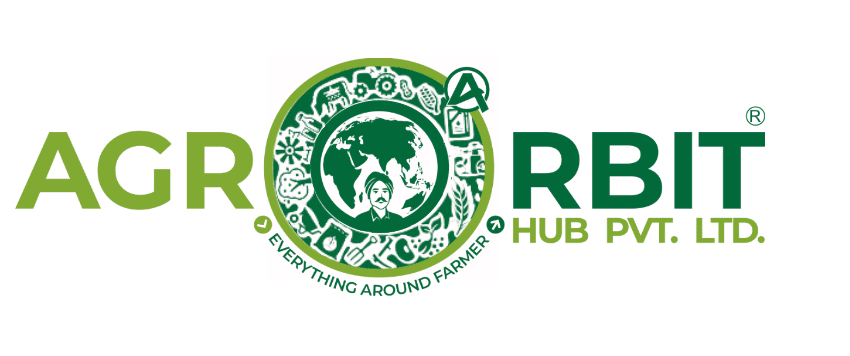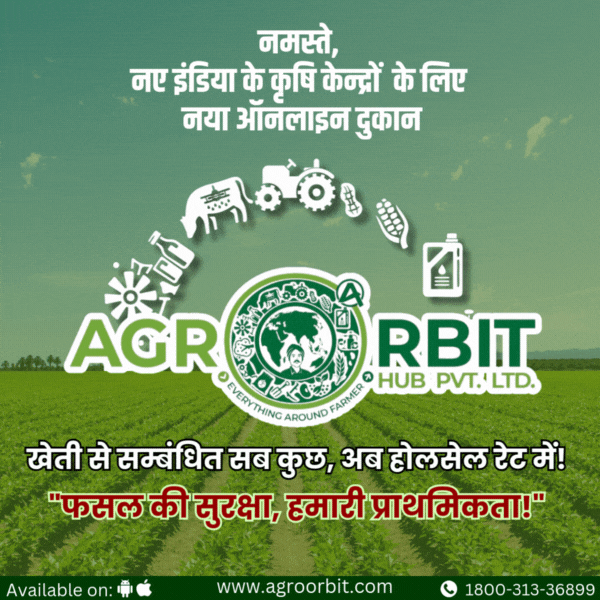

Empowering Small-Scale Farmers: Overcoming Challenges for Sustainable Agriculture
Rooted in Resilience: Empowering Small-Scale Farmers for a Brighter Tomorrow
Introduction:
Small-scale
farmers are the backbone of our global food system, working tirelessly to
sustainably produce the food that nourishes communities around the world.
Despite their vital role, these farmers often operate under challenging
conditions that threaten their livelihoods. In this blog, we'll explore some of
the significant hurdles small-scale farmers face and propose actionable
solutions to empower them towards success.
1. Economic Constraints:
Small-scale
farmers frequently face financial barriers that limit their ability to invest
in their farms and improve their livelihoods. Access to credit is often
limited, and fluctuating market prices can leave farmers struggling to cover
their costs. To address these economic challenges, initiatives such as
microfinance institutions and value chain integration are essential.
Microfinance provides smallholders with accessible credit tailored to their
needs, enabling them to invest in essential resources like equipment and seeds.
Additionally, connecting farmers directly to markets can ensure fair prices for
their produce, reducing their reliance on exploitative middlemen.
2. Technological Gaps:
In an era of
rapid technological advancement, small-scale farmers often lack access to
modern agricultural tools and knowledge. Precision agriculture offers promising
solutions by utilizing techniques such as soil testing and crop monitoring to
optimize resource use and enhance productivity. However, many smallholders
struggle to adopt these practices due to limited access to information and
resources. User-friendly mobile applications can bridge this technological gap
by providing farmers with valuable insights, including weather forecasts, pest
management advice, and market trends. By empowering farmers with timely
information and decision-making tools, we can help them overcome technological
barriers and improve their farming practices.
3. Information Scarcity:
Knowledge is
key to success in agriculture, yet many small-scale farmers lack access to
essential information on sustainable practices, climate change adaptation, and
market dynamics. Strengthening extension services and establishing farmer field
schools can play a crucial role in addressing this information gap. Extension
services provide farmers with expert advice and training on sustainable farming
practices, helping them improve their yields while minimizing environmental
impact. Farmer field schools offer a more interactive approach, creating
opportunities for knowledge-sharing and peer learning among farmers. By
fostering these knowledge-sharing networks, we can empower small-scale farmers
to adapt to evolving challenges and enhance their resilience and productivity.
4. Market Access:
Accessing
markets and securing fair prices remain persistent challenges for small-scale
farmers. Direct market linkages and certification programs offer solutions. By
connecting farmers directly with consumers, bypassing middlemen, smallholders
gain greater control over their produce and pricing. Certification schemes,
such as organic and fair trade, not only enhance market access but also signify
commitment to quality and sustainability, attracting conscientious consumers.
5. Climate Change Impact:
Climate
change poses a significant threat to agriculture, with extreme weather events
disrupting farming activities worldwide. Adapting to climate change requires
promoting climate-resilient crops and investing in water management
infrastructure. Drought-tolerant, flood-resistant, and heat-tolerant crop
varieties enable farmers to withstand environmental shocks, while efficient
irrigation systems and rainwater harvesting mitigate water scarcity, ensuring
sustainable production even in changing climates.
6. Labor Shortages:
Aging
populations and rural-to-urban migration contribute to labour shortages on
small-scale farms. Engaging youth in agriculture through education, training,
and incentives rejuvenates the farming workforce. Introducing appropriate
mechanization reduces labour-intensive tasks, improving productivity and
efficiency while attracting younger generations to farming careers.
7. Land Tenure Issues:
Insecure
land tenure inhibits investment and development on small-scale farms.
Transparent land reforms and collective farming models offer solutions.
Advocating for clear land tenure systems and secure land rights provides
farmers with the stability and confidence to invest in long-term
sustainability. Cooperative farming enhances land use efficiency, pooling
resources and knowledge to maximize productivity while fostering community
resilience.
8. Environmental Degradation:
Environmental
degradation, including soil erosion, deforestation, and water pollution, poses
grave threats to small-scale farming. Adopting agroforestry practices and
conservation agriculture mitigates these risks. Integrating trees with crops
enhances soil fertility, biodiversity, and carbon sequestration, while minimum
tillage and cover cropping promote soil health and water conservation,
safeguarding ecosystems and ensuring long-term viability.
Potential Opportunities for
Small-Scale Farming Success
Local and
Specialty Markets:
One of the key advantages of small-scale farming is the ability to cater to
niche or specialty markets. This could include organic produce, heirloom
varieties, exotic fruits or vegetables, or specialty herbs. By targeting local
farmers' markets, restaurants, or direct-to-consumer sales, small-scale farmers
can command premium prices for their unique offerings.
Community
Supported Agriculture (CSA): CSA programs allow consumers to subscribe to receive regular
deliveries of fresh produce directly from the farm. Small-scale farmers can
leverage this model to secure upfront payments and build a loyal customer base.
CSA programs also foster a sense of community and connection between farmers
and consumers.
Value-Added
Products: Processing
raw agricultural products into value-added goods can significantly increase
profitability for small-scale farmers. This could involve making jams, sauces,
pickles, or other preserved products from surplus produce. Additionally,
artisanal products like cheese, yogurt, or baked goods made from farm-fresh
ingredients can command higher prices in the market.
Agro-Tourism
and Farm Experiences:
Many consumers are increasingly interested in learning about where their food
comes from and experiencing farm life firsthand. Small-scale farmers can
capitalize on this trend by offering agro-tourism experiences such as farm
tours, workshops, farm stays, or agritourism activities like u-pick operations
or pumpkin patches during the harvest season.
Urban
Farming and Rooftop Gardens: In urban areas where land is limited, small-scale farmers
can explore opportunities for urban farming. Rooftop gardens, vertical farming
systems, or community gardens can be viable options for growing fresh produce
in urban environments. These initiatives not only provide access to fresh,
locally-grown food but also contribute to urban greening efforts and food
security.
Specialized
Livestock Production:
Beyond crops, small-scale farmers can also focus on specialized livestock
production such as heritage breed poultry, free-range eggs, grass-fed beef, or
goat dairy products. By emphasizing humane and sustainable practices,
small-scale livestock operations can differentiate themselves in the market and
appeal to consumers seeking ethically-raised meat and dairy products.
Direct
Marketing and Branding: Building a strong brand identity and establishing direct marketing
channels can be instrumental for small-scale farming success. This includes
creating an appealing brand story, developing a professional website and social
media presence, and actively engaging with customers through email newsletters,
farm events, or online sales platforms.
Collaboration
and Partnerships:
Small-scale farmers can enhance their success by forming collaborations and
partnerships with other local producers, community organizations, or
businesses. This could involve co-marketing initiatives, cooperative purchasing
or distribution networks, or sharing resources such as equipment or labour to
reduce costs and improve efficiency.
Diversification
and Risk Management:
Diversifying both crops and revenue streams can help mitigate risks associated
with small-scale farming. By growing a variety of crops with staggered planting
schedules, farmers can spread out their harvests and reduce vulnerability to
weather events or market fluctuations. Additionally, diversifying income
through agritourism, value-added products, or off-farm employment can provide
stability during lean periods.
Regenerative
Agriculture Practices:
Embracing regenerative agriculture principles such as no-till farming, crop
rotation, cover cropping, and composting can not only improve soil health and
productivity but also enhance the long-term sustainability of small-scale
farming operations. Consumers are increasingly interested in supporting farms
that prioritize environmental stewardship and sustainable farming practices.
In conclusion, the empowerment of small-scale farmers is not just a necessity but a moral imperative for creating a sustainable and equitable food system. By recognizing and addressing the challenges they face, from economic constraints to environmental degradation, we pave the way for their success and the resilience of our agricultural landscapes. Through collaboration, innovation, and a commitment to sustainable practices, we can ensure that small-scale farmers thrive, nourishing communities and safeguarding the health of our planet for generations to come. Let's stand together in support of small-scale farmers and their invaluable contributions to building a brighter, more sustainable future.
Note : This research is based on google we are not responsible for any other circumstances.






